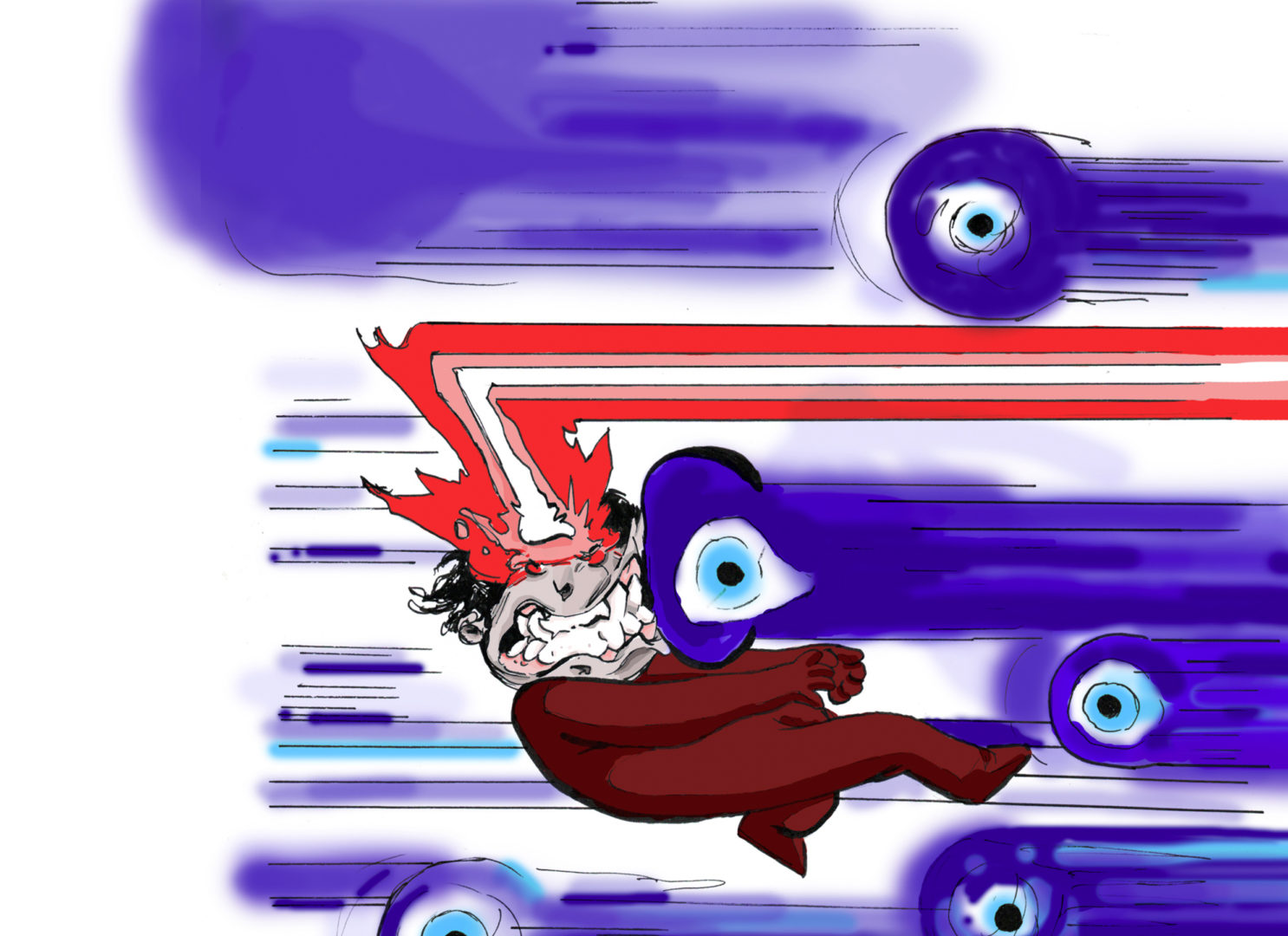Girley Charlene Jazama was born in Namibia and is Ovaherero herself. She’s an actress, screenwriter and producer, having played her first role in 2005. Her first big role was in „The White Line“ 2019, where she played a black maid that fell in love with a white policemen in the 60s. She also co-produced this and several other Namibian movies that were internationally awarded. Her first international role was Kezia in „Measures of Men“ that premiered at Berlinal 2023.
In the interview with renk. Girley is telling us about the her role in the movie and the remnants of colonialism in Namibia.
“Measures of Men”
In the movie “Measures of Men” by Lars Kraume, that aired on the 23rd of March 2023, Girley Charlene Jazema plays an Ovaherero woman, Kezia, who is sent to Germany around 1900, when Namibia was a German colony. In Germany she is forced to take part in a “colonial show” and get her and other Black Ovaherero and Nama people’s heads measured for “scientific purposes”. She meets Alexander (Leonard Schleicher) whose perspective the movie is told from. He is a young scientist who is trying to prove his professors wrong and show that there is actually no biological difference between races. They get along well until Kezia returns to Namibia. As an ethnologist, Alexander becomes a member of an expedition and travels all over Namibia under the protection of the imperial army in search of skulls – and of Kezia. In the ongoing of the movie Ovaherero and Nama start rebelling against the german predators. Their revolt gets violently suppressed and stopped by the german army committing the genocide on the rebelling ethnicities 1904. Despite Alexanders genuine interest in Kezia, he finds himself overstepping more and more moral boundaries until he finally becomes a colonial perpetrator himself.
renk.: You are also a screenwriter. Do you wish for a movie that takes the POV of Herero and Nama in time of the genocide and would you like to write it? What would it look like?
Girley: Yes, there is room for us as Namibians to tell stories from our point of view. I know of a couple of films in development that tell the story from this POV. It’s very difficult at this point to state what it would look like as the story still needs to be developed, but I might tell the story from my great-great-grandmother’s perspective who was a prisoner at the Alte Feste concentration camp.
renk.: A lot of scenes are reproducing racist violence, for example the „colonial exhibiton“. Do you personally think that’s a good or even necessary decision and why so/or why not?
Girley: I dont quite understand this narrative of reproducing racist violence. We can’t shy away from that dark history, the colonial exhibition did take place and all we are merely doing is depicting what happened in that time. If we dont show what happened in that time, how else will we learn from the past?
renk.: You are Herero yourself. The role of Kezia must have been hard if not even traumatic to deal with. How did you manage to separate yourself from Kezia? And was there some sort of healing that the movie and the role of Kezia brought to you?
Girley: When I get on set, I am no longer Girley. Kezia comes to life when I wear her clothes. Kezia is very different from who Girley is and over the years I’ve learned to make clear distinctions between myself and the characters I embody. Every night when we wrap, I wash away Kezia and step back into Girley. Meditation also helps. Yes, there was healing because I mourned the generational trauma of my people and my ancestors. I am so proud to be Herero because I now truly understand the sacrifices of those that came before me.
renk.: You live in Namibia. How present is the colonial past there today?
Girley: It’s still very evident. You see it in the architecture, town names, street names. The fact that we as descendants can’t go visit the gravesite of our ancestors because these farms are now owned by the elite, Germans, South Africans and some are now private game reserves. I mean Swakopmund looks like “little Germany”.
renk.: In 2021, the German government decided that the murdering of Ovaherero and Nama will now officially be recognized as a genocide and agreed to pay development money to Namibia. Do you think that’s enough?
Girley: The representatives of the descendants were not a part of these negotiations. What compensation will ever equate to the lives lost? For me personally a life is priceless.
renk.: In that sense: Germany’s colonial history is definitely a topic that is not yet discussed enough in Germany. „Measures of Men“ is an important part of the country’s historical revision. Do you think the movie also has value for namibian audiences?
Girley: Of course it has value for Namibian audiences. It is the first time that there is a visual representation of what happened to our people. It can also be used as a catalyst for our cause as the descendants.



